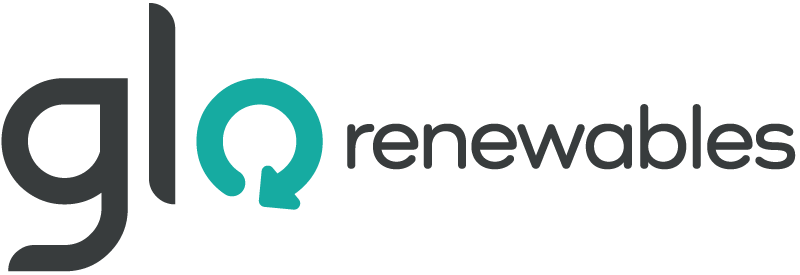Solar Grants
Solar Panel Grants UK: Your Essential 2025 Guide
British households stand to save over £1,000 yearly on energy costs through solar power adoption. The numbers tell a compelling story – solar panels now represent a practical choice for both homes and businesses across the UK.
The government’s landmark ECO4 scheme puts £4 billion towards making solar energy accessible to every household. Qualified homes can receive full funding for their solar panel installations, eliminating upfront costs entirely.
Solar power has never been more affordable. The current zero-rate VAT period until March 2027 reduces installation expenses by £450-£1,800. Standard 3-bedroom homes typically invest £7,100-£9,600 for a complete solar system, yet available grants and incentives substantially lower these costs.
Wondering how these solar grants could work for your property? Our comprehensive guide walks you through every funding option, helping you choose the perfect solar support package for your needs.
Solar Panel Grants UK: The 2025 Landscape
British homes and businesses enjoy unprecedented access to solar power funding in 2025. Fresh government initiatives have opened remarkable opportunities for property owners keen to embrace renewable energy solutions.Current Government Solar Support
Great British Energy stands at the forefront of the UK’s solar revolution. The state-owned company has committed a £180 million investment towards solar installations on public buildings. This ambitious programme will equip 200 schools and 200 hospitals with solar technology, reaching one-third of NHS trusts. Schools could pocket £25,000 yearly in energy savings, while NHS facilities stand to reduce costs by £45,000 annually.
Homeowners and businesses benefit from several vital funding streams:
Energy Company Obligation (ECO4):
Offers complete or substantial solar panel installation funding until March 2026. Targets households with EPC ratings D-G, focusing on vulnerable residents.
Smart Export Guarantee (SEG):
Rewards solar panel owners with 3p to 20p per kWh for surplus electricity fed back to the grid.
Home Upgrade Grant (HUG2):
Supports energy improvements, including solar installations, through March 2025.
Solar Together:
Local council-backed collective purchasing scheme delivering 30-35% cost reductions.
Welsh, Scottish, and Northern Irish residents enjoy additional regional support through programmes like the Warm Homes Nest Scheme. These devolved nations have allocated £9.3 million towards renewable energy initiatives.



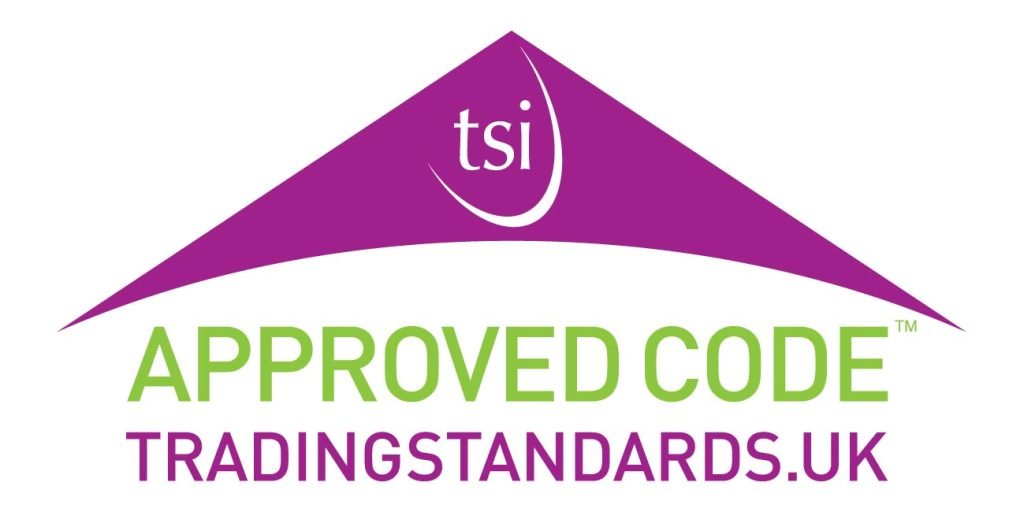

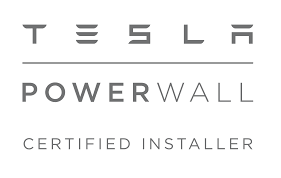



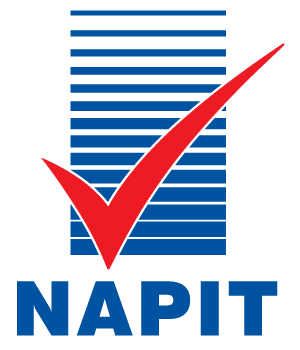
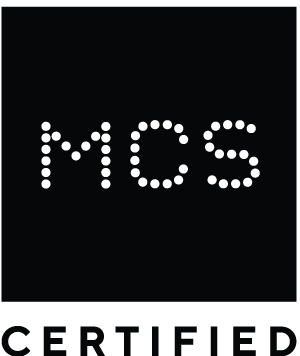
Policy Shifts Boosting Solar Adoption
The government’s decision to remove VAT on solar panel installations until 2027 marks a watershed moment. Homeowners fitting a 4kW system with battery storage now save £2,850 compared to previous rates.
Planning rules have seen welcome simplification. Homeowners no longer face permission requirements for solar installations on houses, bungalows, or flat-roofed apartments. This change eliminates eight-week waiting periods and cuts bureaucratic costs.
Commercial installations have grown easier too. Businesses generating over 1MW from solar panels now follow streamlined planning processes.
April 2025 brings the ‘Warm Homes Plan’, offering grants and affordable loans for energy improvements. Low-income households could receive up to £30,000 for property upgrades.
Labour’s £6.6 billion commitment aims to upgrade five million homes with solar panels, storage systems, and improved insulation. Energy Secretary Ed Miliband champions a “UK solar rooftop revolution,” pushing for simpler planning and solar integration in new builds.
Great British Energy’s pioneering project showcases the government’s dedication to sustainable public infrastructure while tackling operational costs in vital services.


Low-Income Household Solar Support
Solar power should never be a luxury reserved for the wealthy. Government-backed schemes ensure families across Britain can access this money-saving technology, regardless of income level.
ECO4 Scheme Eligibility and Benefits
Money worries shouldn’t stop you from slashing your energy bills. ECO4 stands as Britain’s flagship programme for low-income solar support, backed by £4 billion in government funding through March 2026. Qualified households receive up to £20,000 towards solar panel installation, often covering the entire cost.
Your home needs an Energy Performance Certificate (EPC) rating of D or lower to qualify. You’ll also need one of these qualifying benefits:
- Income-based Jobseeker’s Allowance
- Income-related Employment & Support Allowance
- Income Support
- Universal Credit
- Housing Benefit
- Working Tax Credit
- Child Tax Credit
- Pension Credit Guarantee
- Pension Credit Savings Credit
- Child Benefit (subject to income limits)
Family size matters for Child Benefit recipients. Income thresholds vary between single-parent and two-parent households.
ECO4 delivers remarkable savings – up to £1,000 yearly for typical homes, while less efficient properties could pocket £1,600 annually.
A standard 4kW system generates roughly 3,400kWh yearly, matching most three-bedroom homes’ 3,000kWh consumption.
Local Authority Flex Options
Missing ECO4 criteria?
Local Authority Flexibility might help. This clever extension empowers councils to support households through their own eligibility rules.
LA Flex welcomes two groups:
- Families spending over 10% of income on heating
- Vulnerable residents, including:
- People with heart or breathing conditions
- Disabled individuals
- Mental health patients
- Seniors aged 65+
- Homes with young children
- Expecting mothers
Success breeds success – energy suppliers now channel 50% of support through LA Flex, twice the previous amount. Households earning under £31,000 yearly might qualify, even without benefits.
Application Process for Free Solar Panels
Five simple steps lead to your solar installation:
- Check Eligibility: Ring your energy supplier or approved administrator. They’ll verify your benefits or income.
- Property Survey: Expert surveyors assess your home’s solar potential and energy performance.
- Paperwork: Gather your ID, income proof, energy bills, and property documents.
- System Design: Approved installers tailor your solar setup to your home’s specifications.
- Professional Installation: MCS-accredited specialists fit your panels to strict safety standards.
Most installations complete within two weeks of application. Better still, ECO4 grants give you full panel ownership – no leasing complications when you sell your home.
Homeowner’s Guide to Solar Funding
Smart homeowners across Britain have excellent options to fund their solar dreams. Standard systems cost between £7,800 and £9,600, yet clever funding choices slash these prices dramatically.
Grants for Standard Residential Properties
British homeowners enjoy zero-rate VAT on solar panel installations through 2027. This welcome tax break applies solely to residential installations, though battery storage might attract VAT charges. Pair this saving with other incentives, and your solar investment becomes remarkably affordable.
Missing income-based qualification? ‘The Green Deal‘ opens another path. This practical scheme funds energy improvements through loans, while your reduced energy bills help manage repayments.
Surplus power becomes pocket money through the Smart Export Guarantee (SEG). Selling extra solar energy to the grid creates steady income, helping recoup your investment. Payment rates vary between suppliers, rewarding smart provider choice.
Your local council might sweeten the deal further. Many authorities offer extra funding alongside national schemes. Pop over to your council’s website – you might discover valuable local opportunities.
Home Upgrade Grant (HUG2) Explained
HUG2 brings £630 million of fresh funding between September 2023 and March 2025. This clever scheme targets off-gas homes, helping properties with poor energy ratings shine brighter.
Your home qualifies if it:
- Sits within England
- Lives off the gas grid
- Shows EPC ratings D-G
- Houses residents earning under £31,000 yearly
- Belongs to owner-occupiers or private tenants (with landlord approval)
Solar power leads the charge under HUG2, representing 35% of all improvements. Local councils typically cover 87% of panel costs, with many lucky homeowners paying nothing.
Start your journey through your local authority, who will send a qualified Retrofit Assessor to examine your property. These experts then craft the perfect energy improvement package, often pairing solar panels with smart insulation choices.
Solar Together Group-Buying Scheme
Solar Together brilliantly harnesses group purchasing power, delivering 22-34% savings versus standard prices. This council-supported scheme unites neighbours, boosting bargaining muscle when dealing with installers.
Simply register free on the Solar Together website, sharing your property details and energy patterns. Quality installers compete through reverse auctions, with winning prices benefiting everyone. You’ll receive tailored recommendations covering costs, specifications and projected savings.
Quality stands paramount – every installer faces rigorous vetting. Your package includes everything: panels, fitting, scaffolding, wiring, inverter, monitoring gear and robust warranties, including 25-year output guarantees.
Solar Together thinks ahead, offering battery storage and electric vehicle charging points alongside standard installations. With 1,700+ successful UK installations already complete, this popular route helps countless homeowners embrace affordable solar power.
Grants for Over-65s and Vulnerable Groups
Solar power isn’t just for the tech-savvy or eco-warriors. Older adults and vulnerable households can access substantial support to upgrade their homes – often for free. Many of these groups are eligible for generous, underused funding schemes.
ECO4 Scheme for Vulnerable Households
The Energy Company Obligation (ECO4) remains the cornerstone of solar funding for vulnerable residents. It offers up to £20,000 towards full energy efficiency packages, including solar panels.
Over-65s, those with health conditions, or households in receipt of certain benefits may qualify – especially if their EPC rating is D-G.
Local Authority Flex (LA Flex) Support
Even if you don’t claim benefits, local authorities can approve grants based on:
• Age (65+)
• Health status (including heart, breathing or mental health conditions)
• Household income (typically under £31,000)
• Family circumstances (e.g. children under five or pregnancy)
LA Flex expands access to solar and heating upgrades using discretionary local criteria, not just central government guidelines.
Regional Grant Programmes
Scotland, Wales, and Northern Ireland also provide tailored solar support. For example:
• Scotland’s Warmer Homes Scotland: Offers up to £10,000 in improvements for elderly and vulnerable households.
• Wales’ Nest Scheme: Delivers free solar upgrades alongside insulation and heating support.
• Northern Ireland’s Affordable Warmth Scheme: While not currently covering solar, it supports other key energy-saving improvements.
Getting Started
Applications typically involve:
1. Checking eligibility via your local authority or energy supplier
2. Completing a free home survey
3. Submitting documentation (ID, income proof, energy bills)
4. Booking professional installation
These schemes prioritise comfort, dignity, and savings—helping those most in need live in warm, efficient homes powered by the sun.
Business Grants for Solar Panels UK
British enterprises, from corner shops to sprawling farms, unlock remarkable solar funding opportunities daily. Smart grants slash installation costs while boosting long-term business sustainability.
Commercial Solar Incentives
Money flows both ways when businesses choose solar power. The Smart Export Guarantee (SEG) rewards companies handsomely for surplus electricity, with suppliers paying between 5p and 15p per kWh. These steady payments strengthen your bottom line year after year.
Tax benefits sweeten the deal magnificently. The Full Expensing scheme lets companies write off their entire solar investment against profits through March 2026. Fancy a different approach? The Annual Investment Allowance covers up to £1 million yearly.
Local councils add extra sparkle through the UK Shared Prosperity Fund (UKSPF). This £2.6 billion pot supports regional investment; clever business owners often combine these local and national incentives for maximum savings.
Small Business Solar Vouchers
Small and medium enterprises shine particularly bright under current funding schemes. The UK Shared Prosperity Fund Low Carbon Project shoulders up to 75% of your solar installation costs. Your business qualifies if you:
- Hold SME status
- Own eligible commercial premises
- Stay under £315,000 in recent subsidies
- Show 12 months of energy bills
Regional support blooms across Britain. Birmingham and Solihull businesses tap into the West Midlands Net Zero Grant Programme. Kent enterprises enjoy up to 40% project funding through their Green Business Grant, ranging from £5,000 to £8,000.
Charities and community groups haven’t been forgotten. The Levelling Up agenda covers up to 75% of their solar costs in selected areas.
Government Supported Initiatives: The Decarbonisation Programme
The UK’s drive toward net zero isn’t just a headline – it’s backed by serious investment through government-led programmes like the Public Sector Decarbonisation Scheme (PSDS). Managed by Salix Finance on behalf of the Department for Energy Security and Net Zero (DESNZ), the scheme channels billions into reducing carbon emissions across public sector buildings. While the PSDS isn’t for private homes or businesses, its knock-on effects create major momentum for solar adoption nationwide.
Phase 3 of the Decarbonisation Programme, running from 2022 to 2026 with a £1.425 billion budget, prioritises low-carbon heat replacements and energy efficiency upgrades. Solar PV installations frequently feature alongside heat pumps, insulation improvements, and smart building controls in successful bids. Public sector sites like schools, leisure centres, and council buildings are seeing full solar panel arrays funded under this programme, dramatically slashing both emissions and running costs.
Why does this matter to homeowners and business owners? Because large-scale initiatives like the Decarbonisation Programme set the standard. They help bring down technology costs across the board, increase installer availability, and fast-track the UK’s solar supply chain. Councils participating in these projects often extend learnings – and funding – to community schemes and local partnerships, meaning solar becomes more accessible at the grassroots level too.
For example, if your local authority upgrades a leisure centre with solar panels through PSDS funding, that same council might offer discounted schemes or co-funded community solar options next. And with additional rounds of decarbonisation funding already in discussion, more buildings, regions, and homes could indirectly benefit from the UK’s growing solar infrastructure.
In short, the Decarbonisation Programme isn’t just a public sector play – it’s a rising tide lifting all solar boats. Keep an eye on local announcements to see how your area might benefit.
Agricultural Solar Funding Options
British farmers harvest sunshine through dedicated funding streams. The Farming Investment Fund’s latest round specifically backs roof-mounted and reservoir-based solar systems. Grants cover 25% of costs, ranging from £15,000 to £100,000.
Your solar package includes:
- Solar PV panels
- Battery storage
- Inverters
- Utility metres
- Grid connections
- Power diverters
- Professional installation
Remember – only rooftop and reservoir installations qualify. A £15,000 grant supports a £60,000 system (roughly 40kW with storage), while £100,000 helps fund a £400,000 installation.
Rural Payments Agency applications follow two stages. Start with their online eligibility checker, then submit your full proposal if successful. Smaller setups under 100kW with battery storage typically see higher approval rates.
Solar power now makes perfect business sense. These diverse funding streams help enterprises of every size slash both carbon emissions and operating costs.

Social Housing and Landlord Opportunities
Solar power brightens prospects for social housing providers and private landlords alike. Smart funding schemes create perfect partnerships between property owners and residents, tackling both carbon emissions and fuel poverty.
Warm Homes: Social Housing Fund
British social housing stands poised for remarkable transformation. The government’s Warm Homes Fund commits £1.29 billion between 2025-2028, powering 144 projects across England. Thousands of social homes will soon enjoy modern energy upgrades, including state-of-the-art solar systems.
Competition for this funding proved fierce – applications exceeded the available pot by over £1 billion. March 2025 brought good news for successful applicants, who now have until September 2028 to complete their works.
Social housing providers gain more than just solar panels. The scheme supports comprehensive property improvements, from advanced insulation to efficient heating systems. One region already celebrates success, with over 600 homes sporting external wall insulation.
PPA Schemes for Multiple Properties
Power Purchase Agreements shine as clever alternatives for multi-property landlords. These arrangements see developers installing and maintaining solar systems at minimal upfront cost. Tenants enjoy reduced electricity rates through 10-25 year contracts.
Landlords pocket plenty of perks:
- Lower energy costs with predictable pricing
- Zero capital outlay needed
- Maintenance-free operation
PPAs polish property portfolios while trimming tenants’ bills. Contract end brings choices – extend, buy outright, or remove the system.
Multiple properties mean maximum benefits. Developers secure steady customers, while landlords boost their eco-friendly credentials.
Tenant Benefits from Landlord Installations
Solar panels power remarkable savings for tenants. Reduced electricity bills lead the charge, with some schemes cutting costs by 15% versus standard rates. Hackney showcases success – 800 households now tap into rooftop solar through innovative microgrids.
Benefits stretch beyond pounds and pence. Tenants gain energy security and shelter from market swings. Properties sparkle with added appeal – 61% of social housing residents fancy solar panels, boosting rental desirability.
Numbers tell a compelling story. Schools save £25,000 yearly, and NHS sites pocket £45,000 annually. These savings matter enormously to residential tenants facing rising energy costs.
Private landlords win too. Solar-equipped properties attract more interest and often command premium rents. Everyone benefits – tenants enjoy lower bills while landlords secure better property values and happier residents.
Regional Grant Variations Across the UK
Solar support shines differently across Britain’s nations. Each region offers unique funding pathways, perfectly matched to local needs and aspirations.
Scotland-specific Solar Incentives
Scottish homeowners enjoy exceptional solar support through the Home Energy Scotland Grant and Loan Scheme. Generous grants reach up to £5,000 for solar systems, paired with optional loans. Best of all, every Scottish homeowner qualifies for loans, regardless of benefit status.
Struggling with energy bills? Warmer Homes Scotland steps up with £10,000 funding packages. Professional surveyors assess each home, often recommending solar panels alongside other clever improvements.
Scottish sunshine grows even brighter with zero-rate VAT until 2027, saving homeowners up to £2,850 versus original tax rates. Surplus power becomes pocket money through the Smart Export Guarantee, paying between 1p and 30.3p for every spare kilowatt-hour.
Welsh Government Support Programmes
Wales champions renewable energy through its celebrated Warm Homes Nest Scheme. Free energy improvements, including solar panels, arrive alongside practical money-saving advice. Priority goes to Welsh families managing tight budgets and those in disadvantaged communities.
Nest perfectly mirrors Welsh ambitions – tackling climate change, reaching net zero by 2050, and banishing fuel poverty. Vulnerable households receive tailored support to boost home efficiency.
Welsh homes bloom with improvements – modern heat pumps, quality insulation, solar panels, and reliable heating systems all feature in the programme.
Options in Northern Ireland
Northern Irish homeowners face limited solar grant choices. However, local businesses sparkle with opportunity, accessing grants covering 20% of installation costs.
Fresh funding flows through the Northern Ireland Sustainable Energy Programme (NISEP) 2024-2025. Business owners across Northern Ireland can now register for these 20% green technology grants, with full application guidance coming soon.
Meanwhile, the Northern Ireland Housing Executive tackles fuel poverty through their Affordable Warmth Scheme, though solar panels aren’t currently covered. NI Energy Advice stands ready to guide households towards available energy grants.
Complementary Funding Sources
Smart homeowners boost their solar savings through clever additional funding streams. These extra opportunities make 2025 the perfect time to power up your property.
Smart Export Guarantee Payments
Your solar panels become money-makers through the Smart Export Guarantee (SEG). This brilliant scheme pays you for surplus electricity fed back to the grid. Launched in January 2020, SEG requires major energy suppliers to purchase renewable electricity from small generators like you. Rates never drop below zero, typically ranging from 1p to 15p per kWh. Some suppliers sweeten the deal with peak rates reaching 28p.
Qualifying proves straightforward – keep your system under 5MW and fit an export metre (usually your smart metre) to measure your grid contributions. Unlike older schemes that estimated exports, SEG rewards your exact contribution to Britain’s green energy future.
Green Home Rewards and Cashback
Britain’s biggest mortgage providers reward solar adopters handsomely. Halifax customers pocket £1,000 cashback when fitting solar panels or batteries through their Green Living Reward scheme. Lloyds Bank matches this generosity, offering £1,000 through their Eco Home Reward programme.
Nationwide Building Society charts its own course, focusing on energy-efficient purchases. Their Green Reward scheme puts £500 in your pocket when buying homes scoring 92+ for energy efficiency, or £250 for scores between 86-91.
VAT Exemption Benefits
Zero-rate VAT stands as perhaps your most valuable solar benefit. Since April 2022, residential solar installations have attracted no VAT. This golden opportunity spans Great Britain and Northern Ireland (from May 2023) until March 2027.
Homeowners save substantially compared to the previous 5% rate. Remember though – this applies solely to complete installation packages. Separate panel purchases still attract 20% VAT. Mark your calendar for March 2027, when rates return to 5% barring fresh legislation.
Navigating the Application Process
Your solar funding journey needs careful planning and attention. While schemes differ slightly, mastering these core steps ensures smooth sailing through any solar grant application.
Step-by-step Application Guide
1. Check Your Eligibility
Match yourself against scheme criteria. ECO4 welcomes benefit recipients and households earning below £31,000 yearly through LA Flex.
2. Ring the Right Team
ECO4 applicants should contact British Gas or EDF Energy. HUG2 needs your local council. Solar Together welcomes online registrations.
3. Book Your Survey
Welcome professional assessors to check your home’s solar potential. Most visits happen within seven days of benefit checks.
4. Submit Your Papers
Your completed survey opens doors to formal application. Choose direct submission or installer support.
5. Plan Your Installation
Success means choosing qualified installers for your new system.
Required Documentation
Your application shines with these essential papers:
- Valid ID (passport or driving licence)
- Income proof (bank records or benefit letters)
- Current energy bills
- Homeownership evidence
- Council tax paperwork
- Benefits permission form (ECO4 only)
Mind the details – tiny mistakes like name misspellings create needless delays.
Approval Timelines and Next Steps
Different schemes move at different speeds. ECO4 typically takes two weeks from paper to panels. HUG2 might need 2-4 weeks.
Money matters vary too. Simple installations attract modest grants, while complete energy makeovers might secure £80,000+.
Post-installation checks ensure everything meets standards. SEG payments start flowing once you register with approved suppliers.
Future of Solar Grants in the UK
British solar power stands poised for remarkable growth. Fresh government investments promise brighter, cleaner energy futures for homes and businesses throughout 2025 and beyond.
Great British Energy Initiatives
Great British Energy, Britain’s newest public energy champion, powers exciting solar programmes throughout 2025. Their £10 million partnership with metro mayors sparks local clean energy innovation. Summer 2025 sees 400 public buildings – 200 schools and 200 NHS sites – embrace rooftop solar.
These clever installations promise remarkable savings. Schools pocket up to £25,000 yearly, while NHS facilities save £45,000 annually. Over three decades, total savings could reach £400 million. Local communities gain £12 million for renewable energy projects, spanning solar, wind and water power.
Preparing for Upcoming Opportunities
Smart planning helps secure your solar future. Watch your local council’s Warm Homes Plan announcements closely. Explore community solar schemes backed by Great British Energy. Consider joining collective buying groups as government programmes expand.
Parliament’s £8.3 billion clean energy commitment powers Britain toward its 2030 clean power goals. This bold vision promises fresh funding streams as target dates draw near.
South Hams Spotlight: Commercial Decarbonisation Funding
While residential funding dominates the headlines, a quiet revolution is taking place in the commercial world – especially in progressive councils like South Hams. Businesses, schools, and public facilities across the region are benefiting from targeted grant programmes focused on decarbonisation and sustainability upgrades.
In early 2025, South Hams District Council announced successful recipients of the Public Sector Decarbonisation Scheme (PSDS), delivered via Salix Finance. Local projects included solar panel installations on leisure centres, council buildings, and educational facilities – dramatically reducing both carbon emissions and energy bills.
Why does this matter to businesses and homeowners? These grant-backed public projects send ripples through the regional economy. They fund local installers, boost demand for clean technologies, and establish a supply chain that benefits commercial and residential customers alike.
More importantly, councils like South Hams often leverage knowledge gained from public installations to shape new community grant schemes or public-private funding initiatives. In some cases, businesses that share premises with council-run buildings or lease space in the same energy zones may be invited to co-fund solar projects or apply for follow-on grants under regional Low Carbon Strategies.
Watch This Space: Council-Backed Commercial Funding
If you’re a business in South Hams or neighbouring Devon districts, now is the time to:
- Contact your local council to ask about leftover or follow-up funding linked to PSDS rounds.
- Register interest in upcoming schemes under the UK Shared Prosperity Fund (UKSPF) or regional Net Zero strategies.
- Explore match-funding opportunities where solar upgrades are being rolled out across industrial parks, shared office spaces, or public-private development zones.
These commercial-focused decarbonisation grants aren’t just for big organisations. SMEs, co-operatives, and commercial landlords can all benefit – especially when councils look to create clusters of clean energy generation within their jurisdictions.
In short, the South Hams case shows how local investment in public solar can create opportunities far beyond council walls. Stay alert to council newsletters and climate strategy updates, and don’t hesitate to reach out. The commercial solar funding landscape in 2025 is broader, bolder, and closer to home than many realise.
Conclusion
British homes and businesses embrace solar power through an impressive array of funding options. Powerful schemes like ECO4, HUG2, and the Smart Export Guarantee open doors for homeowners, while thoughtful business programmes deliver tax benefits and specialist funding. Scotland and Wales shine particularly bright, offering extra support through robust regional initiatives.
The numbers tell a compelling story. Households pocket over £1,000 yearly in energy savings, while businesses celebrate returns above £25,000 annually. Zero-rate VAT until 2027 sweetens these savings further, trimming up to £2,850 from typical installation costs.
Time matters when securing your solar future. Begin your journey by matching grants to your circumstances, gathering your paperwork, and partnering with MCS-accredited specialists. Popular schemes often work on first-come principles – swift action ensures you don’t miss out.
Solar funding’s horizon glows with promise. The Warm Homes Plan and Great British Energy projects herald an exciting new chapter in Britain’s energy story. Your switch to solar power does more than shrink bills – it helps build the sustainable future our children deserve.
The workmanship was top-notch, and the entire installation process was smooth and completed quickly. We were especially impressed by how efficiently everything was handled—no delays, no hassles.
Within less than a month, we noticed a significant difference in our electricity usage. It’s amazing to see such immediate results!
I would highly recommend Glo Renewable to anyone considering solar panels. Their professionalism, quality of work, and customer care are truly outstanding.
The solar panels and battery installation is excellent and the team went above and beyond the call of duty and nothing was too much trouble for them. They were exceptionally careful in my home, very tidy work and cleared up after themselves, all to a very high standard, and were so hard-working, very professional and so polite - a real credit to the company. I could not believe how they’d managed to hide the wiring out of sight. You’d really struggle to find another company able to compete on this level. I was kept in the loop at all times, with everything being explained to me as they went along.
Storm was brilliant and so knowledgable and committed, coming out to see me several times before, during and after installation to check I was happy with everything and customer service is even on-going after installation. How many companies offer this?
I was having problems with the Solis inverter installed by others some 5 years old and out of extended warranty. Solis inverter customer service have Glo as service technicians.
Storm at Glo Renewables is so helpful and our communication by email provided me with the resources to look further into the issue. His advice and knowledge soon resolved the problem and I’m very grateful for his help and advice. I have to give Glo the highest recommendation as this level of service is more than five star.
I would 100% use them again. Thanks Storm and the team!
The after sales service was excellent, I was struggling to find a solar contract that paid well and Glo took the time to find me a good commercial deal, which paid much better than the ones I had found myself.
Storm took time to explain the workings of the meters etc after installation and I am sure that if I have any queries going forward, he would be happy to help.
I am very pleased that I chose to go with Glo; they are very professional yet approachable and I would highly recommend.
Highly recommended!
Once we had agreed a contract they started the paperwork process on my behalf. The installation itself which happened a couple of weeks later was very professional and the attention to detail beyond belief.
After the system was commissioned they filled out the rest of the paperwork on my behalf and guided me through using the GivEnergy app and website to manage the system.
Charlie, Storm, Len and George are a truly professional team who I would recommend to anyone.
Putting that basic issue to one side, we have a battery backup system with our 16 panels, providing full electric supply to our property and we get £100-120 per month back for export excess power, that offsets our forthcoming gas bills for the winter.
We are self sufficient now, irrespective of price rises on energy - a sensible investment for the future, assisted by GLO and installed in a clean professional manner.
I don't normally send reviews, but to be fair, they deserve it ....
David Ley
Thank you.
Have already recommended them to friends who were seeking advice about their pv panels.
I would whole heartedly recommend Glo Renewables.
Thank you.
Installation Day went without a hitch and the area in our garage was tidier, cleaner after the install than before. Battery System in operation for a week now and gaining more understanding of how it all works daily with ongoing support from Storm & Charlie by phone. Nothing is too much for them.
I have no hesitation in highly recommending Glo Renewables, Totnes, Devon.
if you find them laughing occasionally , they’re not laughing at you,
They just LOVE their job
Feel free to come and have a look at Glo Renewables amazing job at The Hairy Barista in Totnes
Thank you guys !
Good communication throughout the design & install and great after-sales service & support. They may not have been the cheapest quote, but they were the only company to deliver a package that perfectly matched my needs.
Very happy with my system, three months since install now, and have saved well over £1000 in electricity bills over the last 3 months compared to the same period in 2022.
Would totally recommend Glo Renewables.
Storm/Charlie/George your knowledge between you guys was impeccable.
We had a Givenergy EV charger fitted November 2023 the installation was excellent and the guys were clean and tidy.
A true inspiration and well done Glo Renewables.
Thank you.
Mr & Mrs Wheeler
I recently had the pleasure of having solar panels installed on my home, and I cannot express enough how delighted I am with the entire experience.
What really blew me away was the attention to detail from the team. The whole system looks fantastic, and it's clear they care about both quality and sustainability.
I must mention Charlie too, who is a credit to the business! What a pleasant chap, extremely knowledgeable and his attention to detail (along with the rest of the team in-fact) was second to none.
In a nutshell, this solar panel installation service was a win-win. If you're thinking about going solar, these guys are the way to go. I couldn't be happier.
Thank you Glo Renewables, I feel confident I have made the right choice for both my home and the environment!
GloRenewables provided excellent support, service, value and advice from our initial enquiry, through the necessary approvals to a smooth installation and commissioning. The guys have been an absolute pleasure to work with and to have in our home. No issue has been too small for them to consider and their after sales commitment has, so far, been equally impressive. We would have no qualms in highly recommending Storm and Charlie - GloRenewables - to anyone contemplating either a new solar implementation or additions to existing.
They are definitely a 5* supplier!
We live in a Victorian property with a fragile slate tile roof and were keen to work with a smaller more agile firm that could adapt their approach during the works if needed. We believed a large commercial firm would be less likely to give the job the attention it required.
We benchmarked the quote from Glo with local and national fitters and found it to be competitive. The professionalism and customer centricity of Glo really stood them apart.
The team at Glo have a great relationship with their scaffolders who in turn were very considerate when installing to avoid damaging our ancient Wisteria! Plant pots were carefully moved, benches relocated and the whole site left tidy.
The quality of the work from the Glo team was excellent with close attention to detail, taking extra time to make an incredibly neat and compact install, repairing tiles where possible, replacing where necessary. The supply cable was expertly hidden behind drain pipes etc to be essentially invisible. The inverter and battery install was well thought out for future servicing. Very impressive.
The post install support has been proactive and Glo have patiently supported me through the process of seeking approval for SEG payments.
Overall I would highly recommend Glo for similar projects.
It was a pleasure to have them around for a few days and I'm delighted with the end result. It feels like we are definitely in safe hands!
get a free quote & advice
what our commercial clients say
Frequently asked questions about grants for solar panels.
Here’s some frequently asked questions about grants for solar panels. Let us know if you have any other questions!
Yes, the main government grant for solar panels in the UK is the ECO4 scheme. It primarily assists families needing help with energy bills, and some households may even qualify for free solar panel installation. The scheme runs until March 2026 and covers various home energy upgrades.
To be eligible for free solar panels under ECO4, you need to be a low-income, vulnerable, or fuel-poor household with an inefficient heating system. The scheme targets properties with Energy Performance Certificate (EPC) ratings of D or lower. Specific benefit recipients and those meeting certain income thresholds may qualify.
After 25 years, solar panels can be recycled. Many components, including glass, metals, and silicon, can be recovered and reused. While recycling infrastructure is still developing, proper disposal is crucial to minimise environmental impact. It’s important to work with certified recycling facilities to ensure responsible end-of-life management.
The Warm Homes Local Grant Scheme is available to low-income households meeting specific criteria. Eligible applicants should have a gross annual household income of £36,000 or less, live in deprived areas (ranked in the lowest income deciles), or already receive means-tested benefits such as Universal Credit or Housing Benefit.
Homeowners can potentially save over £1,000 annually on energy bills by installing solar panels. The exact savings depend on factors such as system size, energy consumption, and local electricity rates. Additionally, the current 0% VAT rate until 2027 can reduce installation costs by up to £2,850 for typical systems, further improving the overall financial benefits.
Homeowners and businesses can tap into a variety of financial incentives beyond standard grants. These include zero-rate VAT savings, SEG tariff payments for excess energy, and generous cashback schemes from mortgage providers. When combined, these perks make solar adoption far more affordable than most people expect.
Absolutely. Solar panel systems pair well with electric heating, especially when combined with a solar battery. This setup helps reduce reliance on the grid, particularly during colder months when electric heaters are in high demand. It’s a clever way to warm your home while shrinking your carbon footprint.
Installing solar panels significantly reduces your home’s carbon emissions. A typical 3-bedroom household switching from fossil fuels to Solar could cut its carbon footprint by over a tonne of CO₂ per year. It’s a small change with a big environmental impact.
Always opt for an MCS-accredited solar panel installer. This guarantees they meet high standards for safety and performance. Trustworthy solar panel providers will also offer long-term warranties and guide you through planning permission (if needed), smart meter setup, and SEG registration.
Yes, a smart meter or export meter is essential to qualify for the Smart Export Guarantee. It accurately records the surplus energy your panels export to the grid, ensuring you get paid the correct SEG tariff based on real-time data – not estimates.
They certainly are. Solar energy is one of the cleanest renewable technologies available. It turns sunlight into electricity without burning fossil fuels or releasing harmful emissions, making it an ideal solution for sustainable power generation.
Pairing solar panels with energy-saving improvements like loft insulation, smart heating controls, and double glazing maximises savings. The more efficient your home, the more you benefit from every watt of solar electricity produced.
The average cost of a full solar panel system for a standard UK home falls between £7,800 and £9,600 before incentives. Smart funding options, VAT exemptions, and SEG income can bring your out-of-pocket cost down substantially.
Each scheme varies slightly, but most require homes to have an EPC rating of D or below and occupants to receive specific government benefits. Some schemes, like LA Flex, offer flexible rules based on income, health conditions, or heating bills.
For many homes, yes. A solar battery stores excess energy produced during the day for use in the evening, further lowering your electricity bills. Although it adds to the initial costs, it can increase your energy independence and overall savings over time.
Heat pumps, solar thermal panels, and wind turbines can all complement your solar setup. Combining renewable technologies enhances your home’s energy profile and unlocks additional grant opportunities focused on whole-home efficiency.
Eligible energy-saving materials include solar panels, insulation, and certain types of heating systems like air-source heat pumps. The 0% VAT applies when these materials are professionally installed as part of an energy efficiency improvement project.
Yes, under the Smart Export Guarantee, you can sell any surplus energy your solar panels produce. Payment rates vary by supplier, but they typically range from 1p to 28p per kWh. It’s a steady way to earn while you save.
A SEG tariff is the rate your electricity supplier pays you for surplus electricity you export back to the grid. Larger energy suppliers are required by law to offer SEG tariffs, though the rates and terms vary – so it’s worth comparing providers.
Yes. Even if you don’t qualify for schemes like ECO4, you may still be eligible for local council programmes, Solar Together group-buying schemes, or Green Deal loans. These solar panel funding options are open to a broad range of households.
Indirectly, yes. If your heating system is electric, solar panels can power it at no extra cost during the day. Even gas-heated homes benefit, as solar offsets other electrical costs, freeing up budget for winter heating.
The total cost of installation depends on the size of your system, roof type, accessibility, and whether you add battery storage. Using trusted solar installers and applying for grants can significantly reduce your initial costs.
Well-known solar panel providers include Octopus Energy, EDF, and British Gas, all offering end-to-end solar installation services. Be sure to compare packages, warranties, and SEG rates before committing to any installer.
Yes, most schemes are designed for individual installations. You’ll need to apply through the relevant channel – whether that’s your local authority, energy supplier, or a group-buying scheme like Solar Together.
The Feed-in Tariff ended in 2019, replaced by the Smart Export Guarantee. While FIT offered fixed payments, SEG reflects real-time electricity prices, making it a more market-driven (and often more competitive) approach.
